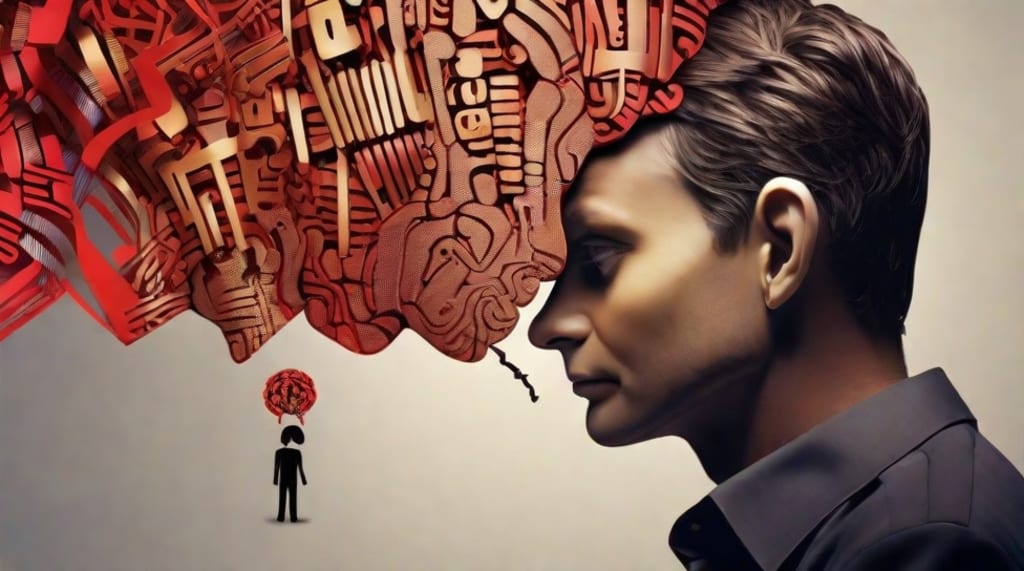Unlocking the Mysteries: 11 Fascinating Psychological Insights into Human Behaviour
Unveiling the Human Mind

Have you ever questioned why humans act, feel, and think the ways that they do? For many people, it is a source of intrigue. After all, our actions and personalities are greatly influenced by how our thoughts work. Numerous studies have been conducted on human behaviour, brain anatomy, and mental processes. We can better comprehend ourselves and others by studying the foundations of behaviour and the human mind, even if there are still many unsolved problems and a long way to go. We've compiled some incredibly fascinating information about the psychology of human behaviour in this video, which should help you comprehend why people think, feel, and act the way they do.
Now, let's get started!
First - Things That Affect Us in Our Early Adult Years Join Us for the Long Haul Ever notice how frequently elderly individuals discuss their early 20s? Or have you ever pondered why coming-of-age tales appeal to so many people? The recollection bump is the term used to describe this phenomenon. You see, because there are so many decisions and changes that take place during adolescence and the early stages of adulthood, we tend to remember these experiences more vividly than others because of their emotional intensity. A child's birth, marriage, and graduation are all fresh events that make them much more unforgettable. Additionally, studies indicate that memories are readily retrieved from the recollection bump due to their association with self-identity and their substantial influence on an individual's attitudes, beliefs, and aspirations in life.
Number 2: You Can Find Effective Solutions by Viewing Your Issues from a Third-Person Perspective Would you say that you consider the issues of others with greater clarity and logic than your own? Solomon's paradox refers to the fact that most people, according to research, answer in the affirmative. Regardless of age, people are more prone to use reason when considering the struggles of others rather than when dealing with their issues. That being said, this bias can be removed via a self-distancing technique. Therefore, the next time you find yourself in a difficult circumstance on a personal level, work on your reasoning abilities by standing back and looking at the scenario from a distance.
Third: The Least Aware of Their Incompetence Are the Most Incompetent This is probably something you've seen happen, perhaps at the family holiday dinner table. An extended family member starts chatting during the meal, insisting that they are the only ones who know the answer and that everyone else is stupid, uninformed, or just plain incorrect. The ignorance of this individual is evident to all in the room. Still, they babble on, happily oblivious to their idiocy. This cognitive bias, known as the Dunning-Kruger effect, causes people to overestimate their intelligence and abilities. They exaggerate their true talents because they lack self-awareness and cognitive capacity.
Number 4: Owners of Aggressive Dogs Are Usually Hostile People According to research, people who possess stereotyped aggressive breeds of dogs are more likely to exhibit traits of hostility, violence, and rage. Is it feasible that individuals select canines that are a reflection of themselves? We usually choose friends and companions based on shared preferences and interests. Why not pets, then? Possibly. However, people's hostility and breed preference for violent animals may also be influenced by other causes. For example, people who live in high-crime neighbourhoods, are socially isolated or receive few visitors are more prone to experience chronic stress, which may make them more aggressive. As a result, they may choose a Rottweiler or Pit Bull as a guard dog.
Number 5: Dreamers Have Greater Creativity Do you often wind up in trouble for losing your concentration in class or during a business meeting? Although mind-wandering is sometimes associated with negativity, this isn't always the case. Indeed, daydreaming could be a sign of creativity and intelligence! High levels of mind-wandering are positively correlated with both tested intellect and creativity, according to the study. Furthermore, daydreamers not only tend to have higher IQs than non-daydreamers, but their brains also seem to function better. Yes, some people's brains are more efficient than others, meaning they can think more clearly and consequently, their minds may stray when doing simple activities. When necessary, they can easily switch between talks or duties without missing any important information or instructions.
Number 6: It Hurts Literally to Be Rejected As You Have you ever experienced rejection and felt as though someone hit you in the stomach? Because of what? That's how our brains are programmed to react. It turns out that when we feel rejected, our brains activate in the same areas as when we get hurt physically. For this reason, even minor rejections cause more agony than they ought to because they cause both mental and physical suffering.
Number 7: Making Different Decisions When Speaking a Foreign Language One would assume that people would make decisions the same way regardless of the language they were speaking or that decision-making would become less organised due to the challenge of learning a new language. But the reverse is true. It has been demonstrated that learning a foreign language lowers decision-making biases. We must repress our native tongue when conversing in a foreign one. Additionally, we need to repress our natural intuitions to think logically. Research on brain imaging reveals that the same brain regions are engaged in logical cognition and the usage of foreign languages. Additionally, the inhibitory centre of the brain is activated in foreign language speakers, which inhibits their emotions and intuitions. Speaking a foreign language helps people make more sensible decisions as a result.
Number 8: Unless it's us, we attribute a person's behaviour to their personality. Have you ever been furious with someone for cutting you off while driving, only for them to do the same to someone else just a short while later? Furthermore, even though you were upset with the person who interrupted you and thought things like "what a jerk" or "this guy is an a$$hole," you probably told yourself that it was okay because you were in a rush and it was only once. Regretfully, we often assume that those who commit horrible deeds are bad people. The tendency to attribute an individual's behaviour to their character instead of any situational context is called the basic attribution fallacy.
Number 9: We Think That Other People Can Persuade Us More Easily Than We Can It appears that we are more conscious of the effects advertising has on other people than on ourselves. And we call this the third-person effect. Individuals are able to observe how persuasive messages or advertisements impact their peers but not how they feel. Moreover, individuals are more likely to downplay its impact, and it gets worse when it's an advertisement for something they don't care about. Even though you might not be aware of it, the messages in the media that you are exposed to daily have an unconscious impact on your attitude, desires, and emotions.
Number 10: Dopamine Leads to an Information Addiction Have you ever spent hours upon hours browsing through your social media feed? It all boils down to the reward loop that seeks dopamine. Dopamine is referred to as the "pleasure chemical" since it drives you to pursue enjoyable pursuits like food, sex, drugs, and other vices. However, dopamine also stimulates curiosity and knowledge seeking! Your dopamine loop is triggered when you scroll through your feed, so you want to keep scrolling for more content. The unsettling aspect is that there will never be a point at which the quantity of information at your disposal is adequate! You will likely scroll until anything stops you.
Number 11: You Can Live a Longer Life by Frequently Assisting Others. Giving freely of your time, resources, or effort to help others is good for both the world and you. Research has demonstrated that volunteering in the community improves one's sense of well-being, health, and happiness. Volunteering regularly can improve your life fulfilment while reducing stress and preventing illness. This could be because volunteering enhances our social lives and lessens loneliness. Psychologists have also discovered that those who volunteer regularly typically have longer lifespans than people who don't engage in such activities. Remember that most of these amazing truths about human nature were found through small-group research, even though they disclose a lot about the nature of people.
However, they do offer an excellent means of posing queries and initiating an exploration of the enigmatic realm of psychological research.
About the Creator
David Kolawole
Welcome to my page! I'm David Kolawole, a passionate teacher and content creator.
If you're seeking valuable knowledge, engaging insights, and a fresh perspective, you've come to the right place.
Enjoyed the story? Support the Creator.
Subscribe for free to receive all their stories in your feed. You could also pledge your support or give them a one-off tip, letting them know you appreciate their work.






Comments
There are no comments for this story
Be the first to respond and start the conversation.